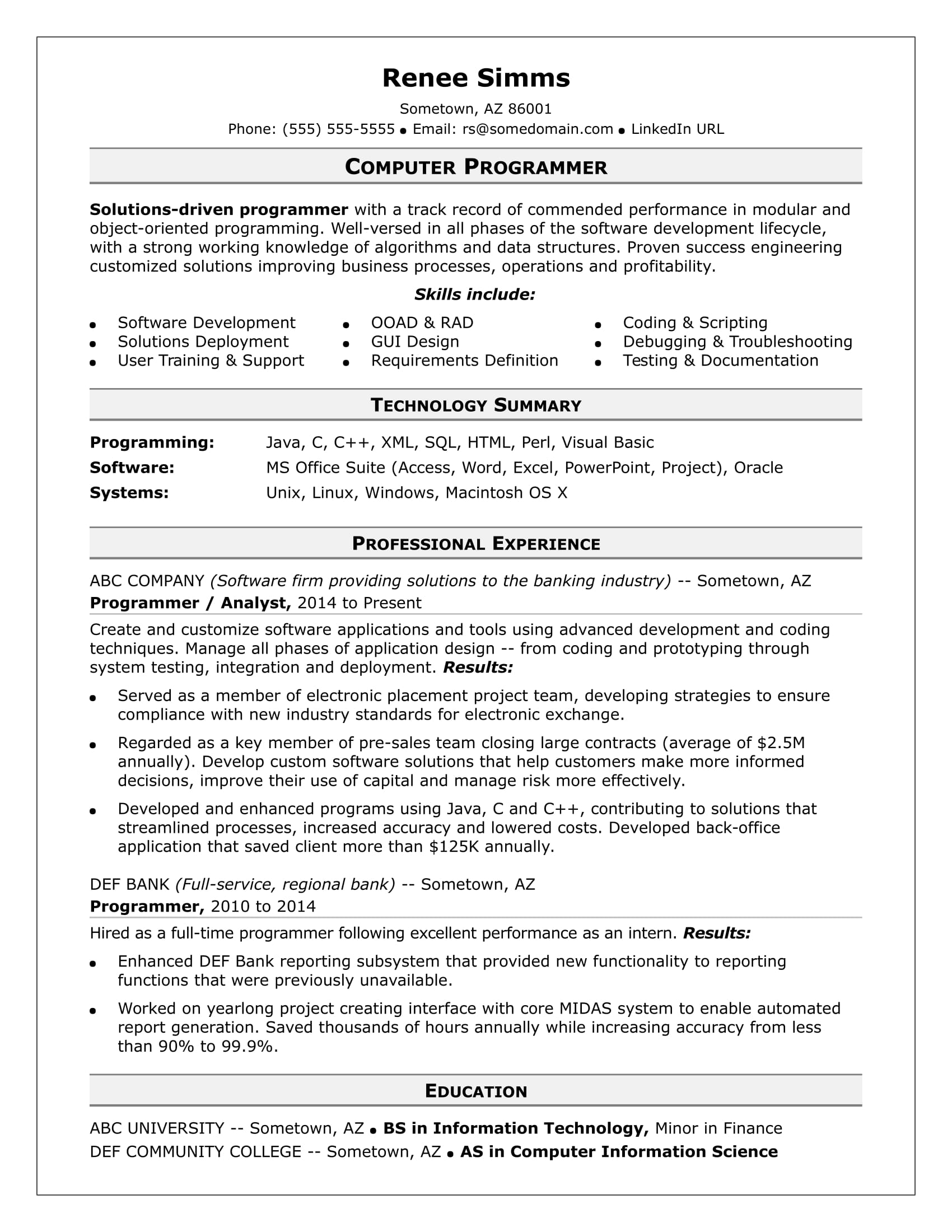In this economy, job seekers are at an advantage. Businesses are desperately seeking employees, not just in the service industry, but also in the tech industry. But that doesn't mean it's not important to put your best foot forward and craft the perfect resume that highlights your talents.
I have interviewed scores of software engineers and managers across three companies over a 13-year career. As a director I've made the final call on hiring several QA analysts, QA engineers, and QA managers. I've represented my company at several career fairs. So I know what I want to see in a resume.
This is one area I wanted to make sure I had a lot of experience in before I spoke publicly about it. I feel I have finally achieved that level of experience. Here is my advice.
Basics
A resume should list your skills, your technologies you're familiar with, your work history, and your education. There are a lot of good samples on the Internet. I have posted one below.
Work History
I've been told to make sure I highlight concrete, measurable accomplishments rather than job duties. That is, don't say "Responsible for redesigning backends", say "Streamlined backends, reducing wait time by 50%" if you sped up a backend request from 0.8 seconds to 0.4 seconds. But when I'm reviewing resumes, I am less focused on those achievements since some are easier to accomplish, depending on the company's existing technology. Additionally, many of those tasks were given by bosses and measured afterwards. That measurable accomplishment doesn't tell me much more than a description of the task you were given; it just tells me that you were successful at it. When I read work history, what I'm generally looking for are the technologies worked with, tasks given, and roadblocks overcome.
Similarly, use action verbs. Don't just say "did", "made", and "told". Use "performed", "implemented", and "documented". Once again, I see through that kind of stuff, but it's a good sign when you can use strong action verbs truthfully to describe what you accomplished at previous companies. For example, "documented" implies a permanence that "told" does not. Are they still using your research? Probably so if it was "documented." Probably not if you only "told" someone about it.
Definitely don't sell yourself short. Highlight your top accomplishments and phrase your responsibilities and leadership so that readers don't think you just played a small part in any projects that you led or had a massive part in.
Words Words Words
There is an exception to my apathy to big words: fancy words and flowery grammar show me that you have an excellent command of the English language. If I have any bias, it's a bias towards excellent English communicators. As a software engineer, I have worked with many people who didn't know how to communicate properly and it has occasionally become a stumbling block. It is sublime working aside engineers who can disseminate information widely and individually in a manner that is concise, precise, and unambiguous. Yes, I did use some SAT words there to make a point.
Don't Lie
Oh my god, don't lie. At Google, I once did a "coaching call" (mock interview) with an applicant who claimed he had been the leader of a local student organization. Incidentally, not only had I participated in that same organization, I actually knew the then-leader of the organization. While on the phone with this applicant, I realized something was suspicious and asked for clarification. He backtracked from his lie.
I would never hire someone who would lie about something small like an extracurricular activity. Saying you know Java when you only wrote a small Java app is a small stretch of the truth. Saying you held a leadership position you didn't actually hold is such a meaningless lie that it shows you can't be trusted at all.
Cover Letters: Unnecessary
A cover letter has never, not once, affected whether I wanted to hire someone or not. I understand that there is a level of effort in creating one, but that effort could go towards improving your resume or leveling up your interviewing skills. Anything important to know should be in the resume. Most times, I don't even read cover letters.
Resume Length: 1-2 Pages
It's hard to fit your whole life onto one page, especially if you've been at multiple companies. Now that physical paper is a thing of the past, a two-page resume is completely fine or even expected. Three is a bit long and four is ridiculous, unless you've had a very long, illustrious career. Stick to 1-2 pages. My current resume is 1.5 pages.
Fancy Design
Should you use column headers, multiple colors, a sidebar? I shy away from that. My resume is super plain; maybe even too plain. I do enjoy reading a nice looking resume, but don't go too fancy and make things difficult to read. During my current job hunt, I've filled out online job applications that scan my resume and fill out the application with the parsed results. I imagine these apps struggle on overly-fancy resumes.
An exception is when the role requires good design skills. I am impressed when a frontend developer has a nice resume. This may be foolish, but I suspect the skills in resume design may carry over into web design. But it's not required.
Customize to the Job
If you're applying to different roles, customize your resume. For example, I've applied to QA manager roles and engineering manager roles recently. Each time, I tailor my resume to highlight what the hiring manager wants to see and remove experiences and skills that are irrelevant.
Example
I find that most sample tech resumes on the Internet are pretty good, so follow those for the basics.

